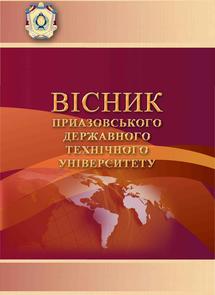Taranenko I.V. The role of transnational corporations in the global innovation system formation.
DOI:
https://doi.org/10.31498/2225-6725.31.2016.104557Keywords:
transnational corporations, innovation, R&D, global innovation gap, the global innovation system.Abstract
The author conducted the analysis of volume dynamics and location by the regions and countries of R&D spending performed by the leading corporations for years 2008-2015. Comparative analysis of the dynamics of countries and regions innovation development allowed to justify the controversial impact of TNCs on the existence of global innovation gap. On the one hand this effect is in a relative reduction of disparities between the developed countries and a limited group of Asian developing countries (China and India) due to the reorientation to these countries substantial flows of R&D expenditure. On the other hand this effect is in the conservation of high development level of "innovation leaders "compared with other regions and countries-outsiders. The author confirmed the hypothesis on the system formation role of transnational corporations in shaping global innovation system through the creation of global innovation networks, location research and development centers of multinational corporations not only in developed countries but also in the developing and the reorientation the corporate investment R&D flows toward these countries. Proved that innovation policy in developing countries, should be based on the activation of their own R&D, infrastructure and information and communication technologies development, the growth of human capital, together with the creation of conditions for placing R&D centers of leading multinational corporations, attracting foreign corporate investment in R&D for the effective inclusion in the global innovation system.References
- Jaruzelski B. Innovation’s New World Order: The Global Innovation 1000. / B. Jaruzelski, K.Schwartz, V. Staack // Strategy + Business. – 2015. – Issue 81. – Р. 1–18.
- Castellachi F. Closing thе Technology Gap? / F. Castellachi // Review of Development Economics. – 2001. – 15(1). – P. 180–197.
- Адаманова З. О. Инновационные стратегии экономического развития в условиях глобализации: монография / З. О. Адаманова. – Симферополь: Крымучпедгиз, 2005. – 504 с.
- Мешко Н. П. Глобальні і локальні наслідки інноваційного розвитку світової економіки / Н. П. Мешко // Вісник Львівського університету. – 2008. – Вип. 25. – С. 286–294. – (Серія: Міжнародні відносини).
- Роль научных и инновационных фондов в развитии национальных инновационных систем: информационно-аналитический бюллетень. / ред. И. В. Карзанова, А.Е. Шаститко.– М.: Бюро экономического анализа, 2004. – 30 с.
- UNESCOInstituteforStatistics: [ Електронний ресурс] – Режим доступу: http://www.uis.unesco.org/.
- 2016 Global R&D Funding Forecast: [Електронний ресурс] / Battele, R&D Magazine. Winter 2016. – Режим доступу: http://www.rdmag.com. 8. TNCUNCTAD: [Електронний ресурс] / Офіційний сайт UNCTAD – Режим доступу: http://unctad.org/en/Pages/DIAE/Transnational-corporations-%28TNC%29.aspx
- Survey on the Internationalization of R&D: Current Patterns and Prospects on the Internationalization of R&D. – UNCTAD, 2005. – 17 p. 10. Тараненко І. В. Інноваційна конкурентоспроможність країн у сучасних умовах глобалізації / І. В. Тараненко // за наук. ред. Ю. В. Макогона. – Дніпропетровськ: Дніпропетровський університет ім. Альфреда Нобеля. – 2013. – 424 с.
Downloads
Published
2016-05-26
How to Cite
Тараненко, І. В. (2016). Taranenko I.V. The role of transnational corporations in the global innovation system formation. REPORTER OF THE PRIAZOVSKYI STATE TECHNICAL UNIVERSITY Section: Economic Sciences, 1(31), 54–62. https://doi.org/10.31498/2225-6725.31.2016.104557
Issue
Section
Статті
License
Copyright (c) 2019 Ірина Всеволодівна Тараненко

This work is licensed under a Creative Commons Attribution-NonCommercial 4.0 International License.
The journal uses the Creative Commons Attribution 4.0 International (CC BY 4.0) licence, which means that the authors retain copyright and allow others to freely use, modify, adapt, distribute articles; even for commercial purposes - provided that the authorship and source are indicated. Full text of the licence: https://creativecommons.org/licenses/by/4.0/deed.uk.



